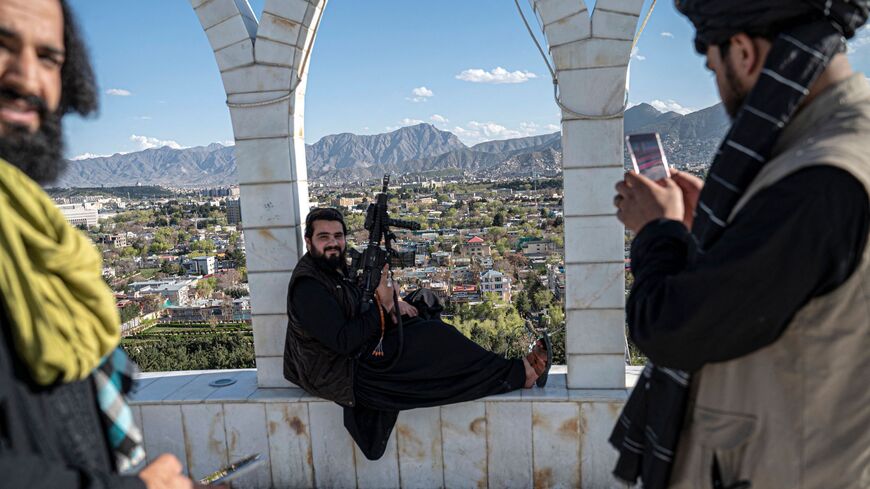TEHRAN — Iran's Foreign Minister Hossein Amir-Abdollahian stressed regional cooperation in restoring peace to Afghanistan, as he met in Uzbekistan with counterparts from China, Russia and Pakistan for the latest security situation under the Taliban.
During the four-way meeting with China's Qin Gang, Russia's Sergey Lavrov and Pakistan's Hina Rabbani Khar on Thursday, Amir-Abdollahian said that what Afghanistan needs is "regional solutions rather than Western interference," according to a report published by the Iranian Foreign Ministry.
The meeting was held on the sidelines of an international summit in the Uzbek city of Samarkand. The previous summits of this sort were hosted by Pakistan in 2021 and Iran and China in 2022.
The main participants in the Samarkand summit — China, Russia, Pakistan and Iran — have been jostling in a covert rivalry for influence in the new Afghanistan, including leverage in the geopolitical calculations in Kabul. The four neighboring countries of Afghanistan see an opportunity to increase their influence following the 2021 US withdrawal from the country it had invaded in 2001 following the 9/11 terrorist attacks.
In the same meeting, the Iranian top diplomat blamed the United States for security failures in Afghanistan. "As occupiers, America and its allies should be held to account for their actions in the past two decades in Afghanistan," he declared. Amir-Abdollahian claimed that the West "has pushed Afghanistan into poverty and instability."
The Islamic Republic has not officially recognized the Taliban's control of Afghanistan but has maintained peaceful relations with the new rulers, allowing Taliban officials to station diplomats in the Afghan Embassy in Tehran. Despite sporadic border tensions, Iran has also refrained from engaging in verbal clashes with the Taliban.
Without openly criticizing Taliban officials for the restrictions they are imposing on Afghan civil society, Amir-Abdollahian called on them to deliver on promises of political inclusion. He did stop short of condemning the Taliban for its notorious ban on women's education, only expressing Tehran's readiness to encourage the Taliban to reopen schools to Afghan women.
Iran's push for various forms of influence in Afghanistan dates back nearly four decades. Most notably, the overseas branch of the Islamic Revolutionary Guard Corps (IRGC), the Quds Force, has been seeking a foothold in Afghanistan since the early 1990s. The project was pursued more seriously after then-obscure commander Qasem Soleimani took the helm of the Quds Force in 1998 at a time of extreme chaos under the first Taliban takeover.
After Soleimani's death in a US airstrike in early 2020, Gen. Esmail Qaani succeeded him. Known among his fellow commanders for his Afghanistan expertise, Qaani's engagement in Afghan missions is believed to date well into the early 1980s.
Among a host of goals in post-US Afghanistan, the Islamic Republic is particularly seeking to widen its reach in the country for the purpose of recruiting Shiite loyalists to the Fatemiyoun Brigade, which Tehran has dispatched to Syria to fight alongside the IRGC and the Syrian army.








